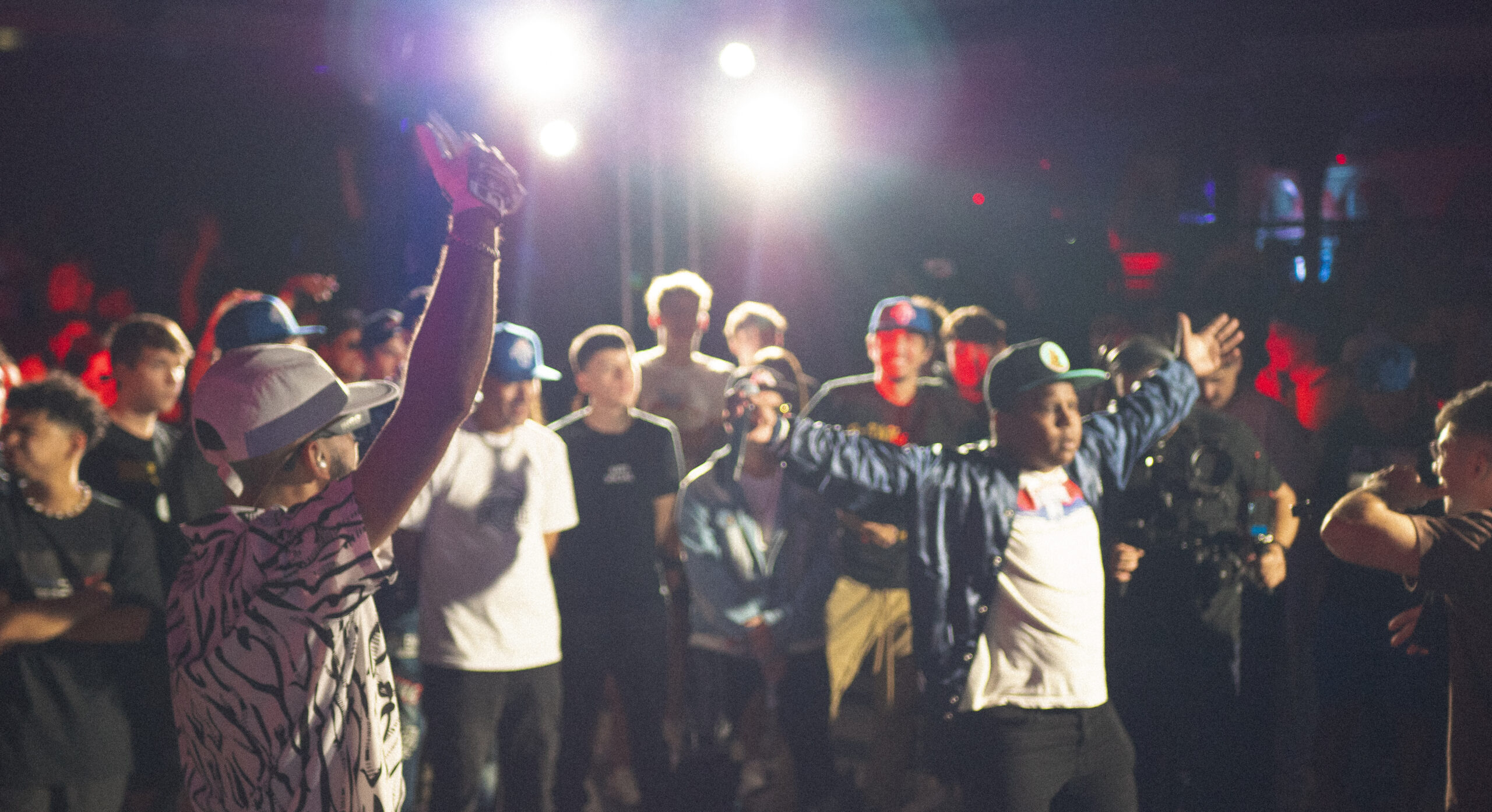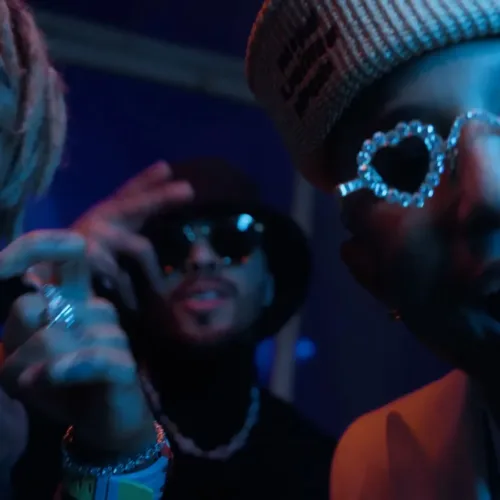Last year, when LATINA interviewed Mo Amer, a Palestinian-born comedian whose family settled in Houston when he was just nine years old, he said there are three art forms that are indigenous to the United States: jazz, stand-up comedy and hip-hop. If that’s the case, one could argue that Houston, the place where hip-hop was not born but perfected, should be considered one of the genre’s national capitals.
Looking at the roster of influential MCs to come out of H-Town — a list that includes Scarface, Bun B, Geto Boys, Travis Scott, Megan Thee Stallion, Mike Jones, Baby Bash, Paul Wall and many, many, many more — it becomes clear that only the best of the best can survive on the city’s stages. Even Drake, who proudly claims his home city of Toronto, didn’t start getting national attention until he performed at one of Houston’s premier proving grounds, Warehouse Live in 2009.
But now that many of the biggest names are starting to diversify outside of music — including Travis Scott’s Space Village boutique and Bun B’s recently-opened Trill Burger restaurant — Houston’s finest are no longer the aspiring up-and-comers they once were. Now that they’re household names, they’re more concerned with shepherding young MCs to the top than they are in continuing to solidify their own artistic legacies. The cypher circle has always been the place for up-and-coming talents to prove themselves.
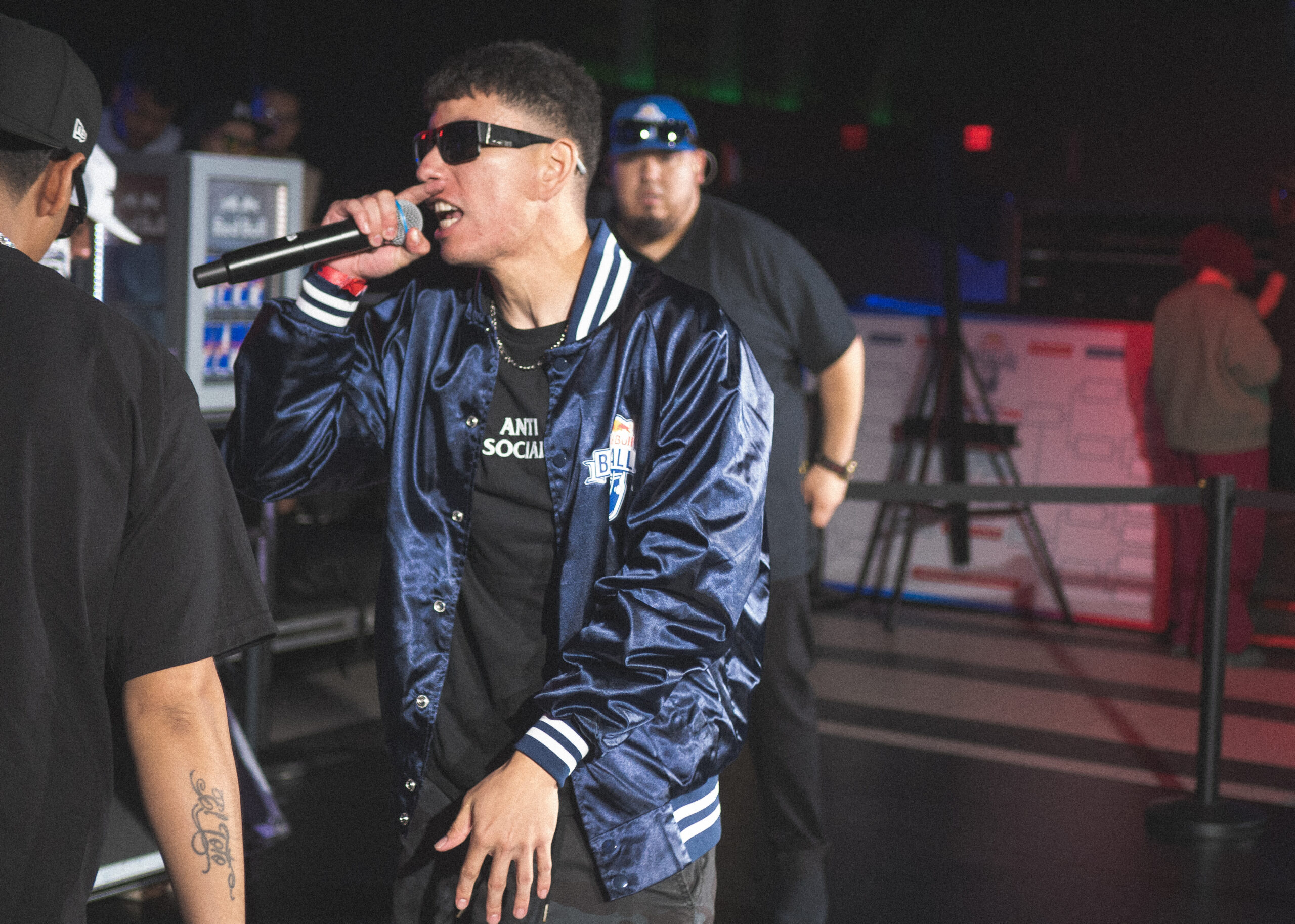
Jordi. Photo: Josef Rodriguez. Assist: Rafael Lacasse
Now, Red Bull is giving young MCs an opportunity to do exactly that on an international stage. Through a nationwide tour, Red Bull Batalla pits 16 MCs against each other in every city, where they’ll battle it out with their lyrical prowess. Red Bull then allows four semi-finalists from each qualifier to move on to the national competition in Dallas later this year. From there, only one US-based rapper will make it through to the international finals in Colombia, where they’ll battle MCs from around the globe in the hopes of being crowned the greatest battle rapper on the planet.
On August 12th in Houston, the energy was overwhelming. Sure, if you put a group of hungry artists in a room and make them compete, there’s no way it won’t get hectic, but the only thing that ran parallel to the ardor was the respect. Traveling with the MCs to and from the competition, I noticed how their rapport on- and off-stage couldn’t be more different. They’re still hurling punchlines at one another through multisyllabic mastery, regardless of whether or not there are cameras nearby, but the feeling that they know they’re all in this together is unshakeable.
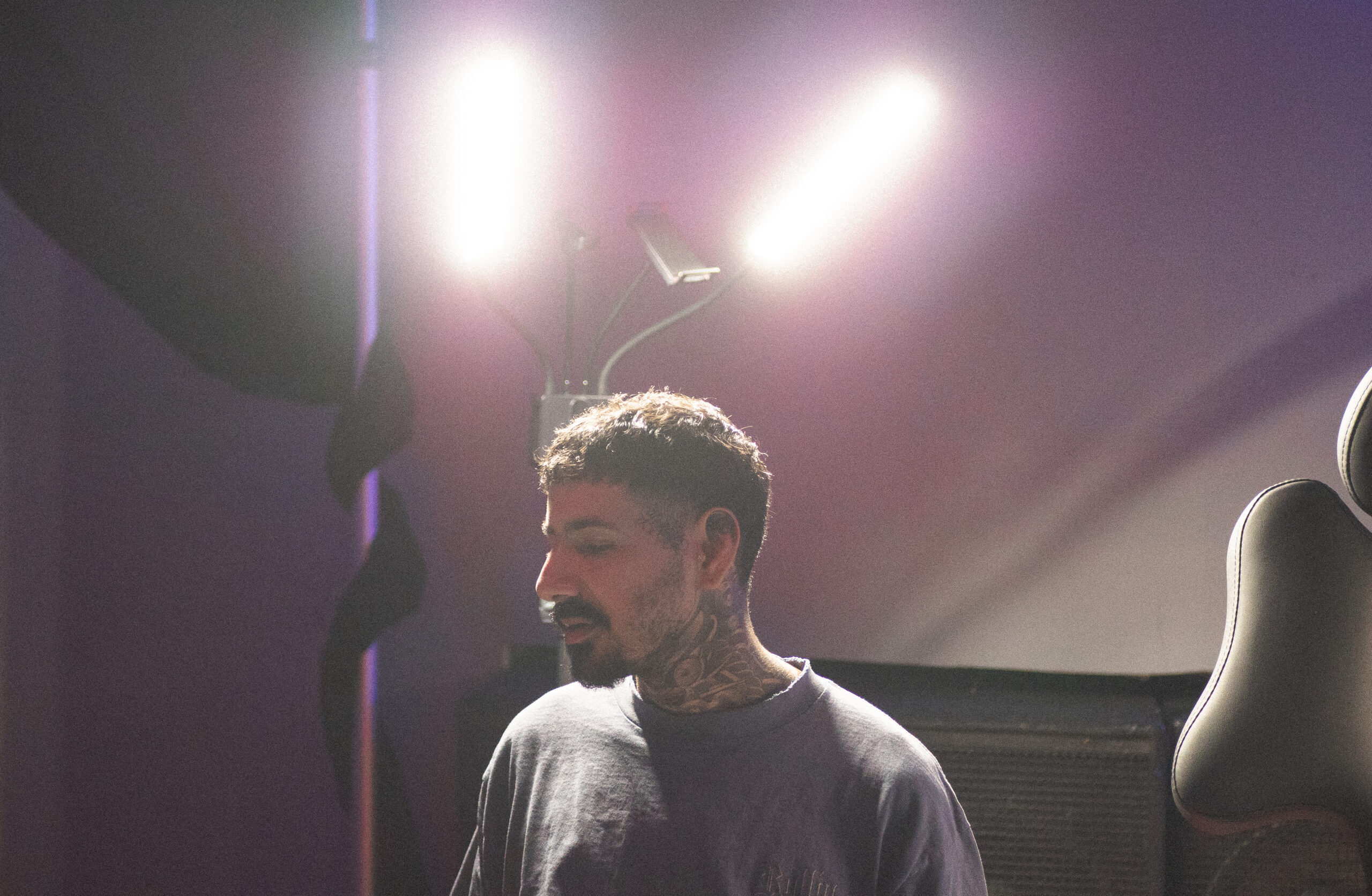
Vito Torres, a tattoo artist featured at the event. Photo: Josef Rodriguez. Assist: Rafael Lacasse
Because if one MC from Houston makes it, every MC from Houston makes it. Each of these competitors, individually and as a collective, embodies this philosophy, refusing to let ego get in the way of camaraderie and their genuine love for the art form. Add to that the unbelievably warm response toward one of Houston’s latest exports, That Mexican OT, and I had all the proof I needed. In Houston, the essence of hip-hop — an expression of community, storytelling and, let’s be honest, effortless swagger — is alive and well.
Through eight initial rounds, the 16 hopefuls were whittled down to just eight, and then four, and then two, until one — Magimbri — emerged victorious. But that’s not to say there weren’t other hugely impressive displays of talent; in fact, the opposite is true. There were standouts, like fellow semi-finalist Lies, who made his way to the final round with an inimitable energy and a seemingly never ending series of unforgiving bars. Elsewhere, Estany’s silky smooth flow would blend perfectly with whatever fellow Houston native Don Toliver is working on right now. Conversely, Izes’ aggressive showing more closely resembled a cage match than a friendly cypher.
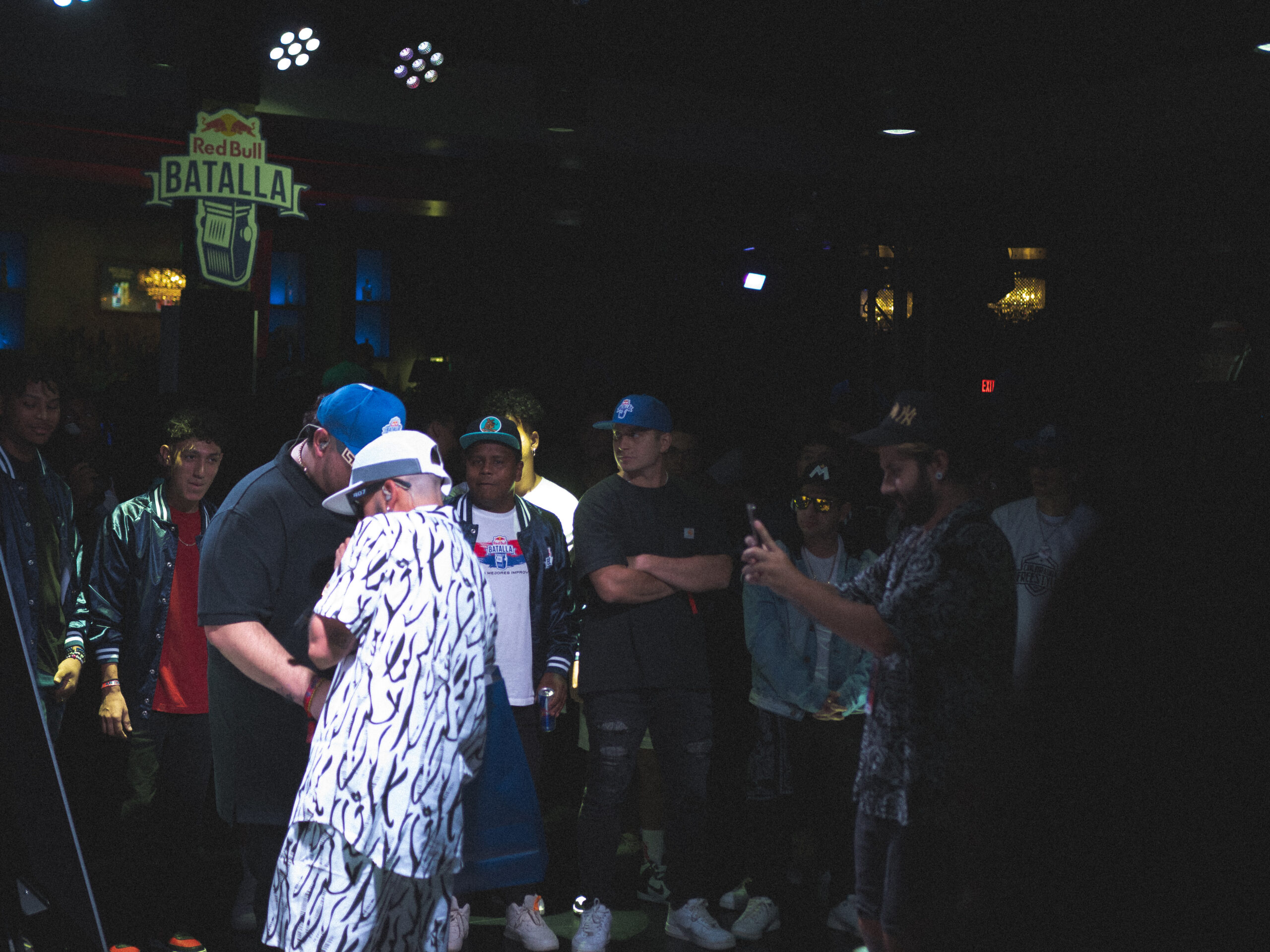
Rasco White Lion and Fluffy the Host introducing the next competitors. Photo: Josef Rodriguez. Assist: Rafael Lacasse
However, when it comes to hip-hop, victory isn’t only measured in trophies and accolades. Ultimately, it’s about finding someone who can really move a crowd. And there was arguably no MC that got more love from the audience than White Caracas, a rapper with a seemingly endless supply of devastating punchlines, original flows and breath control. Labeling him a silver-tongued devil may actually be doing him a bit of a disservice. He’s more like an assembly line, a well-oiled machine of concepts, delivery and punchlines.
Although he wasn’t awarded the night’s top honors, he will be moving on to the nationals in Miami, where he’ll undoubtedly catch the attention of every single person within earshot. Even still, it’s anyone’s game at this point and everyone involved knows it.
Following the competition, Houston native That Mexican OT took the stage to perform a few of his recent hits, including “Johnny Dang,” the song that has turned the rapper into an artist that hip-hop fans everywhere need to take notice of. Prior to his performance, we talked about his origin story, and how being a rapper was never even a second thought to him.
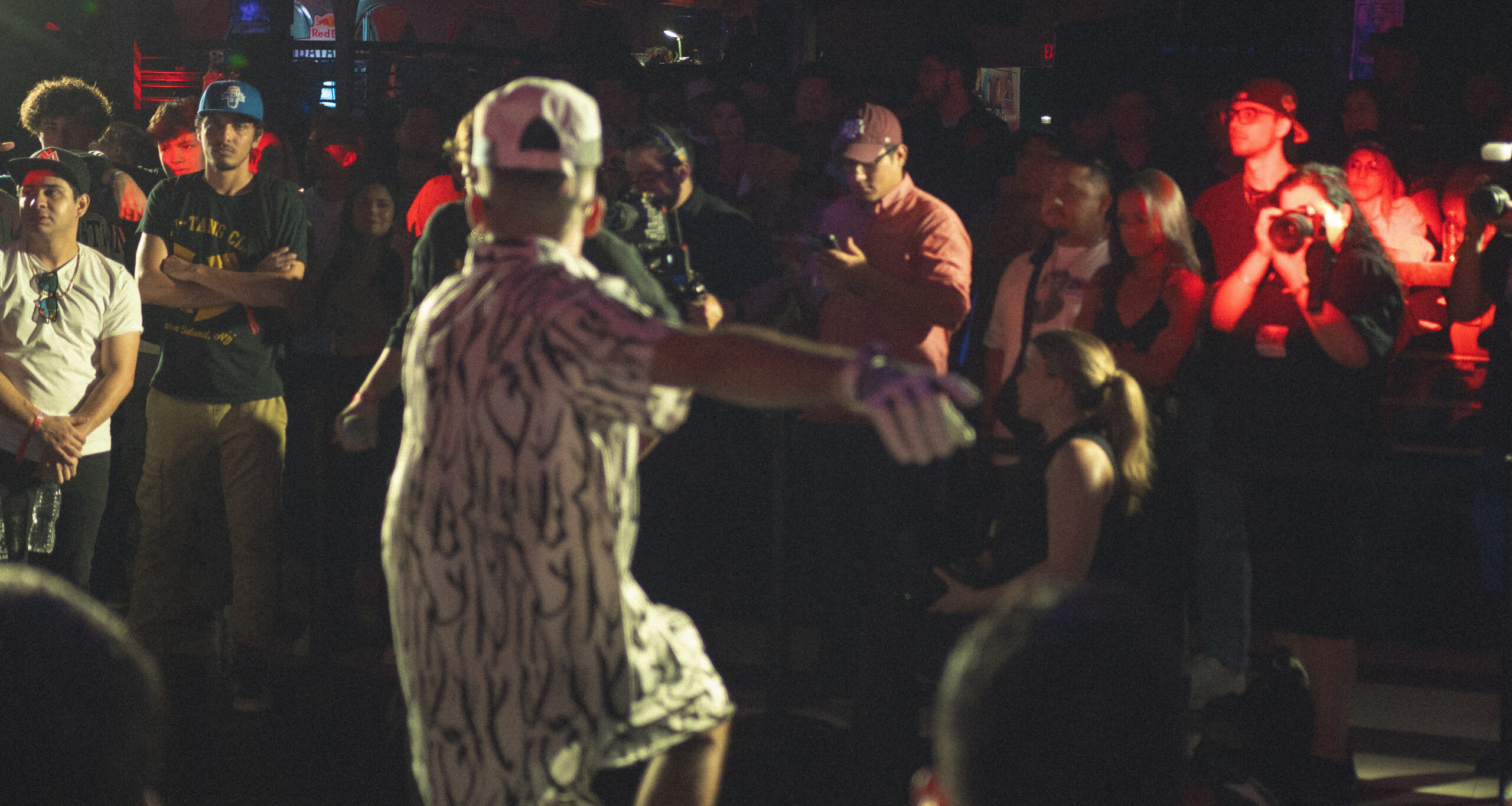
Rasco White Lion. Photo: Josef Rodriguez. Assist: Rafael Lacasse
“I’ve been spitting my whole life,” the rapper said. “As soon as I started talking I was rapping. It was like my first language.” However, it took the support of his closest friends for That Mexican OT to make the leap into becoming a full-time artist. Even though he’s a born and bred Texan, the rapper cites east coast rappers like Big L and 50 Cent as some of his major influences. Today, his style evokes the best of what rappers like Kevin Gates and DaBaby have to offer, with a southwestern twang and signature tongue trills that put him in a league of his own.
Riding back to the Hotel Derek in Houston, on a bus, with all sixteen competitors, it was almost as if they were still on their way. Inside the confines of a chartered bus, there were no winners and no losers. No champions, no underdogs, no bright-eyed hopefuls or hardened veterans. There was community, there was joy, and there were laughs, all in the cypher.
Josef Rodriguez is a writer, filmmaker, and film critic living in New York City.
